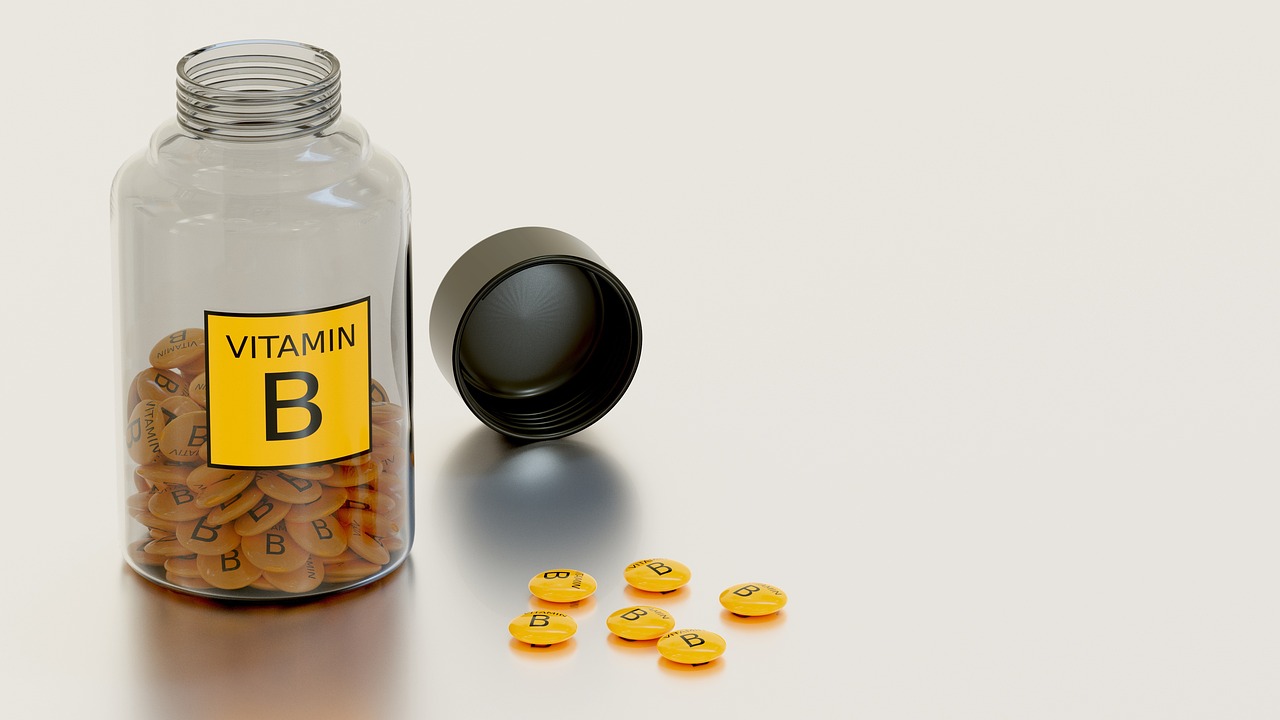Vitamin B12, otherwise known as cobalamin, is a nutrient highly required in the production of energy, nerve functioning, and formation of red blood cells. In the process, though, most people are still not aware of its importance or how one can make sure levels stay adequate. This paper shall let one understand the core functions of vitamin B12, what happens in its deficiency, and finally give some valuable tips on how to get enough of this energy-boosting vitamin through diet, supplementation, and some simple alterations in lifestyle.

Roles of Vitamin B12
1. Production of Energy
Vitamin B12 takes a central role in turning the food one consumes into energy. This is achieved through the intake metabolism of carbohydrates, fats, and proteins, allowing the body to use it efficiently.
-Cellular Energy: B12 aids in the production of adenosine triphosphate, or ATP, which serves as cells’ chief carrier of energy. Therefore, one can say that this reaction brings energy and stamina throughout a person’s day.
• Prevention of Fatigue: This is the prevention of weakness and fatigue since the vitamin aids the body in making red blood cells, which are responsible for carrying oxygen to tissues.
2. Nerve Function
Vitamin B12 also plays a very important role in maintaining healthy nerve cells.
-Myelin Sheath Formation: B12 is needed for the production of myelin—a protective sheath that covers nerves—which ensures proper nerve signaling. The deficiency can thus give way to neurological disorders like tingling sensations or numbness and problems related to balance.
-B12 and Cognitive Health: An adequate level of B12 in the system is related to the well-preserved ability of cognitive performance and might reduce one’s risk for neurodegenerative diseases, including dementia and Alzheimer’s disease.
3. Formation of Red Blood Cells
Vitamin B12 is a requirement in the development and maturation of red blood cells.
• Prevention of Anemia: It allows the production of red blood cells and DNA synthesis; hence, it prevents megaloblastic anemia, a condition whereby the red blood cells are oversized and ineffective in carrying oxygen.
• Healthy Blood Levels: The right amount of B12 will ensure your blood cells are healthy and that your blood can transport adequate oxygen to the different parts of the body.
Preventing Vitamin B12 Deficiency
1. Dietary Sources
Including a diet rich in B12 is one of the best ways to avoid deficiency. Majorly derived from animal-based foods, the sources include –
– Meat and Poultry: Beef, chicken, and pork
– Fish and Seafood: Salmon, tuna, and clams are some of the B12-rich seafood.
– Dairy Products: Milk, cheese, and yogurt have good amounts of B12.
• Eggs: Eggs are another source of B12, particularly in the yolks.
2. Fortified Foods
In cases where someone is on specific diets or belongs to the population groups at risk, fortified foods can help make up for any deficiency in the diet.
• Fortified Cereals: Most breakfast cereals have been fortified with vitamin B12.
• Plant-Based Milk: Some plant-based milk alternatives are fortified with B12, such as almond milk and soy milk.
– Nutritional Yeast: One such ingredient, quite commonly used by vegetarians and vegans, is nutritional yeast, which is often enriched with vitamin B12 and adds a cheese-like flavor to food.
3. Supplements
Supplements of vitamin B12 can be an effective way to make sure one gets enough, particularly in people who have diets that involve certain limitations to the amount of these vitamins they absorb.
Forms of Supplements: B12 supplements come in several forms, which are tablets, sublingual tablets, and injections. Your healthcare can help you determine what’s best for you.
Dosage: The RDA of B12 differs in accordance with age groups and health conditions. Consult with a healthcare professional regarding the appropriate dosage.
Lifestyle Factors Affecting Vitamin B12 Levels
1. Age and Absorption
In older people, the body’s ability to absorb vitamin B12 from food decreases due to age-related lower stomach acid production and poor digestion.
– Older Adults: Such findings suggest that older adults may have to be under constant monitoring and supplementation to keep the levels of B12 within their bodies at accepted levels.
2. Vegetarian and Vegan Diets
The primary source of vitamin B12 is in animal products; therefore, it is likely that those who follow vegetarian and vegan diets will be deficient.
– Plant-Based Alternatives: On a plant-based lifestyle, make sure you consume some kind of fortified foods or supplements to help meet the B12 needs.
3. Digestive Health
This could influence the bioavailability of vitamin B12 in the presence of some gastrointestinal disorders, like celiac disease or Crohn’s disease.
– Regular Check-Ups: If you have a history of digestive disorders or have undergone gastrointestinal surgery previously, regular blood tests will allow for monitoring of your B12 levels and appropriate treatment in case of deficiency.
Signs of Deficiency
Know the signs or symptoms of deficiency in vitamin B12, such as fatigue and weakness, pale or yellowish tinge to the skin, numbness or tingling in the extremities, difficulty walking due to lack of balance or coordination, memory loss, etc. Any such signs should raise an alarm to seek consultation with a doctor to get evaluated or possibly tested.
Conclusion:
Vitamin B12 is among the powerhouse nutrients that play a vital role in energy production, function of the nervous system, and formation of red blood cells. Knowing what it does and how you can guard against deficiency by a balanced diet, topped up by either food enriched with this vitamin or, as required, by supplements, will help in being healthy and well. Keep an eye on the latest information that helps guide your informed decisions in keeping levels of this important vitamin in check and enjoying all its many benefits throughout life.